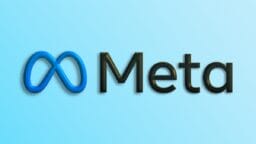Federal Court to Address Google’s Ad Tech Monopoly
In a significant judicial ruling this month, a federal judge remained steadfast against the government’s request to dismantle Google, a move aimed at curbing its monopolistic practices in the search engine arena.
Now, the tech giant seeks a further affirmation of its legal standing.
Beginning September 22, Judge Leonie M. Brinkema will preside over proceedings in the US District Court for the Eastern District of Virginia, tackling the intricate issue of Google’s monopoly concerning online advertising technologies.
Earlier this year, Judge Brinkema determined that Google had transgressed legal boundaries to preserve its supremacy in a largely obscured technological ecosystem responsible for ad placements across the internet. The proceedings are projected to unfold over a span of two to three weeks.
The Justice Department has proposed that Google divest itself of the technology enabling transactions between ad space buyers and sellers, along with other potential corrective measures.
In contrast, Google has advocated for reforms to its auction bidding mechanism, suggesting adjustments that would ostensibly favor publishers.
The resolution by Judge Brinkema could potentially destabilize Google’s substantial business, valued at approximately US$3.1 trillion, while concurrently redefining the operational paradigms of digital dominance in the contemporary internet landscape.
During a past hearing in May, she hinted at the possibility of enforcing a sale of one of Google’s advertising software products, a maneuver that could alleviate her apprehensions.
Legal analysts have observed that this case aligns more closely with historic, stringent antitrust rulings, which may embolden the judge to adopt a vigorous stance.
This hearing follows a recent conservative antitrust judgment by Judge Amit P. Mehta of the US District Court for the District of Columbia, who ruled that Google’s search operations could persist without major alterations.
While he mandated that the tech firm share its search results with competitors and limit payments that ensure preferential treatment for its search engine, he denied the government’s insistence on a divestiture of Google’s widely used Chrome browser.
The outcomes in these cases against Google could reverberate through upcoming government antitrust lawsuits targeting other dominant tech enterprises.
A ruling is anticipated this year in a case against Meta, where the government contends that the company stifled nascent competition by acquiring Instagram and WhatsApp.
Additionally, a trial is set for 2027 concerning Amazon, which faces allegations of exploiting small merchants on its platform. Meanwhile, the government has also accused Apple of creating barriers for users wishing to exit its ecosystem.
Lee-Anne Mulholland, Google’s global head of regulatory affairs, asserted that the Justice Department’s recommendations for rectifying ad technology were excessive, potentially “unraveling acquisitions deemed lawful by the Court and jeopardizing tools beneficial to advertisers and publishers.”
In response, the Justice Department refrained from further commentary.
The dismantling of Google would mark the most notable judicial action against a monopoly since a federal judge endeavored to separate Microsoft two and a half decades ago.
The last successful endeavor dates back to 1984, culminating in the separation of AT&T’s local phone operations into seven regional providers pursuant to a settlement with the government.
The ad tech lawsuit, classified as US et al. v. Google, was initiated in 2023, addressing a convoluted network of programs responsible for selling advertising space on various online platforms, such as news and culinary websites.
This array of software conducts rapid auctions to facilitate ad placements whenever a user loads a webpage.
This sector generated revenues amounting to US$30.36 billion in 2024, constituting roughly 9% of Alphabet, Google’s parent company’s total income. According to the government, Google’s share of the ad tech market stands at 87%.
Last year, publishers and rival ad technology firms attested during a three-week trial that Google’s dominance enabled it to retain a larger share of ad revenues than would be feasible in a competitive environment.
The Justice Department argued that Google monopolizes three crucial components of the online advertising structure: the tools for publishers to manage their ad inventories, the system utilized by advertisers to place bids for that ad space, and the technology bridging the two entities.
In rebuttal, Google asserted that the advertising landscape had evolved. The company contended that website ads were merely a fragment of a broader ecosystem, encompassing advertising on streaming services and social media platforms like TikTok.
Judge Brinkema concurred with the government regarding Google’s monopoly over the tools for publishers and the technology enabling sales. She remarked that the company had effectively sustained its monopoly by interlinking the two systems.
However, she found insufficient evidence to support the claim that Google had infringed upon the law concerning advertiser tools, indicating that its acquisitions in ad tech were not anticompetitive by nature.
Moving forward, witnesses—including current and former Google employees and industry experts—will provide testimony regarding potential remedies for mitigating Google’s monopolistic influence.
The Justice Department is advocating for Judge Brinkema to mandate the sale of software integral to connecting buyers and sellers of ad space, known as an ad exchange. Moreover, the government is pushing for Google to share some of the code governing ad auctions with competitors.
Should competition remain stagnant post-intervention, the Justice Department requests the appointment of an independent monitor to determine if further sales of Google’s publisher tools are warranted.
In turn, Google has proposed measures to enhance accessibility of its ad software for competitors, including direct connections between Google’s ad exchange and rival ad tools for publishers, alongside potential alterations to ad auction rules that they contended afforded Google an unfair advantage.

During the May hearing, Brinkema hinted at her consideration of the government’s argument advocating for the divestiture of its ad exchange.
She questioned, “If you eliminate the exchange, which acts as the intermediary, you effectively sever the tie with publishers, allowing advertisers to utilize any exchange of their choosing. What barriers would remain to impede that free-market choice?”
Legal experts posit that Judge Brinkema’s ruling could significantly influence the trajectory of antitrust law enforcement.
The dual recognition of Google’s monopolistic standing in both search and ad technology has been perceived as a reassuring affirmation for proponents advocating the sufficiency of current legislation to rein in major tech firms, as noted by Doha Mekki, former acting assistant attorney general for antitrust under the Biden administration.
“Should the proposed remedies fail to adequately address the critical and insidious monopoly issues that have been established, it raises concerns about the efficacy of current laws in regulating digital markets,” Mekki observed, having overseen elements of the ad tech litigation.
Source link: Thestar.com.my.






